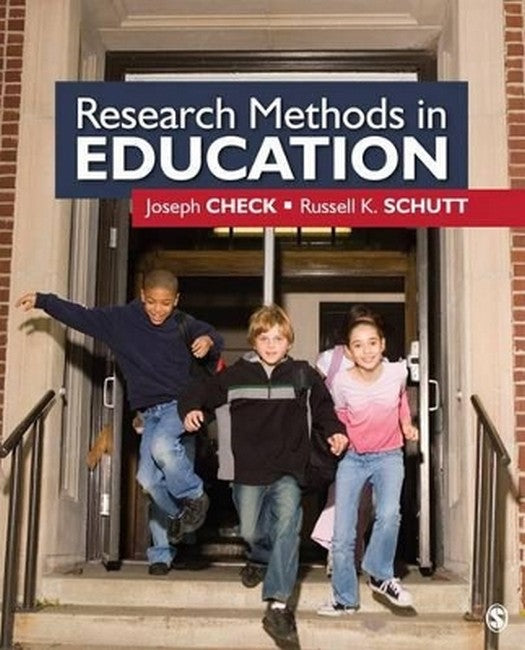Joseph W. Check, Ph.D. is Associate Professor and Chair of the Department of Educational Leadership in the Graduate College of Education, University of Massachusetts, Boston. He completed his B.A. at Boston College and his M.A. and Ph.D. in English at Tufts University. His prior publications include Politics, Language, and Culture: A Critical Look at Urban School Reform (Praeger, 2002), co-editorship of Writing Within School Reform, a monograph series of the Annenberg Institute for School Reform at Brown University, and book chapters and articles on literacy, practitioner inquiry, and urban school reform. He has supervised dissertations in school reform, professional development, literacy, home/school interactions, and special education. He has served as Principal or Co-Principal Investigator for numerous grant-funded professional development programs including a 4-year, $4M practitioner inquiry project in 14 urban school districts, funded by the DeWitt-Wallace Reader's Digest Foundation. He is an experienced classroom instructor in master's and doctoral level research courses. Russell K. Schutt, PhD, is professor emeritus of sociology at the University of Massachusetts Boston, where he received the 2007 Chancellor's Award for Distinguished Service and taught from 1979 to 2022. He is also a Clinical Research Scientist I at Beth Israel Deaconess Medical Center and a Lecturer (part-time) in the Department of Psychiatry, Harvard Medical School. He completed his BA, MA, and PhD degrees at the University of Illinois at Chicago and was a postdoctoral fellow in the Sociology of Social Control Training Program at Yale University (where he met Dan). In addition to ten editions of Investigating the Social World: The Process and Practice of Research and one of Understanding the Social World, as well as coauthored versions for the fields of social work, criminal justice, psychology, and education, his other books include Homelessness, Housing, and Mental Illness (2011), Social Neuroscience: Brain, Mind, and Society (coedited, 2015), and Organization in a Changing Environment (1986). He has authored and coauthored more than 65 peer reviewed journal articles, as well as book chapters and research reports on homelessness, mental health, organizations, law, and teaching research methods. His currently a Dual Principal Investigator (with Matcheri Keshavan, MD) in randomized comparative effectiveness trial of two socially-oriented interventions to improve community functioning among persons diagnosed with serious mental illness, funded by the Patient-Centered Outcomes Research Institute (PCORI). His other recently concluded research includes co-principal investigator on a National Science Foundation-funded study of the social impact of the pandemic in Boston, and co-investigator on a Veterans Health Administration-funded study of peer support. His earlier research has been funded by the National Cancer Institute, the Veterans Health Administration, the National Institute of Mental Health, the Fetzer Institute, and state agencies. Details are available at https://blogs.umb.edu/russellkschutt/.
Request Academic Copy
Please copy the ISBN for submitting review copy form
Description
Preface Part I. Foundations of Research 1. Science, Schooling, and Educational Research Learning About the Educational World The Educational Research Approach Educational Research Philosophies Conclusions 2. The Process and Problems of Educational Research Educational Research Questions Educational Research Basics The Role of Educational Theory Educational Research Goals Educational Research Proposals, Part I Conclusions 3. Ethics in Research Historical Background Ethical Principles Conclusions 4. Conceptualization and Measurement Concepts Measurement Operations Levels of Measurement Evaluating Measures Conclusions 5. Sampling Sample Planning Sampling Methods Sampling Distributions Conclusions Part II. Research Design and Data Collection 6. Causation and Research Design Causal Explanation Criteria for Causal Explanations Types of Research Designs True Experimental Designs Quasi-Experimental Designs Threats to Validity in Experimental Designs Nonexperiments Conclusions 7. Evaluation Research What Is Evaluation Research? What Can an Evaluation Study Focus On? How Can the Program Be Described? Creating a Program Logic Model What Are the Alternatives in Evaluation Design? Ethical Issues in Evaluation Research Conclusions 8. Survey Research Why Is Survey Research So Popular? Errors in Survey Research Questionnaire Design Writing Questions Survey Design Alternatives Combining Methods Survey Research Design in a Diverse Society Ethical Issues in Survey Research Conclusions 9. Qualitative Methods: Observing, Participating, Listening Fundamentals of Qualitative Research Participant Observation Intensive Interviewing Focus Groups Combining Qualitative and Quantitative Methods Ethical Issues in Qualitative Research Conclusions 10. Single-Subject Design Foundations of Single-Subject Design Measuring Targets of Intervention Types of Single-Subject Designs Analyzing Single-Subject Designs Ethical Issues in Single-Subject Design Conclusions 11. Mixing and Comparing Methods and Studies Mixed Methods Comparing Reserch Designs Performing Meta-Analyses Conclusions 12. Teacher Research and Action Research Teacher Research: Three Case Studies Teacher Research: A Self-Planning Outline for Creating Your Own Project Action Research and How It Differs From Teacher Research Validity and Ethical Issues in Teacher Research and Action Research Conclusions Part III. Analyzing and Reporting Data 13. Quantitative Data Analysis Why We Need Statistics Preparing Data for Analysis Displaying Univariate Distributions Summarizing Univariate Distributions Relationships (Associations) Among Variables Presenting Data Ethically: How Not to Lie With Statistics Conclusions 14. Qualitative Data Analysis Features of Qualitative Data Analysis Techniques of Qualitative Data Analysis Alternatives in Qualitative Data Analysis Computer-Assisted Qualitative Data Analysis Ethics in Qualitative Data Analysis Conclusions 15. Proposing and Reporting Research Educational Research Proposals, Part II Reporting Research Ethics, Politics, and Research Reports Conclusions Appendix A: Questions to Ask About a Research Article Appendix B: How to Read a Research Article Appendix C: Finding Information, by Elizabeth Schneider and Russell K. Schutt Appendix D: Table of Random Numbers Glossary References Author Index Subject Index About the Authors

